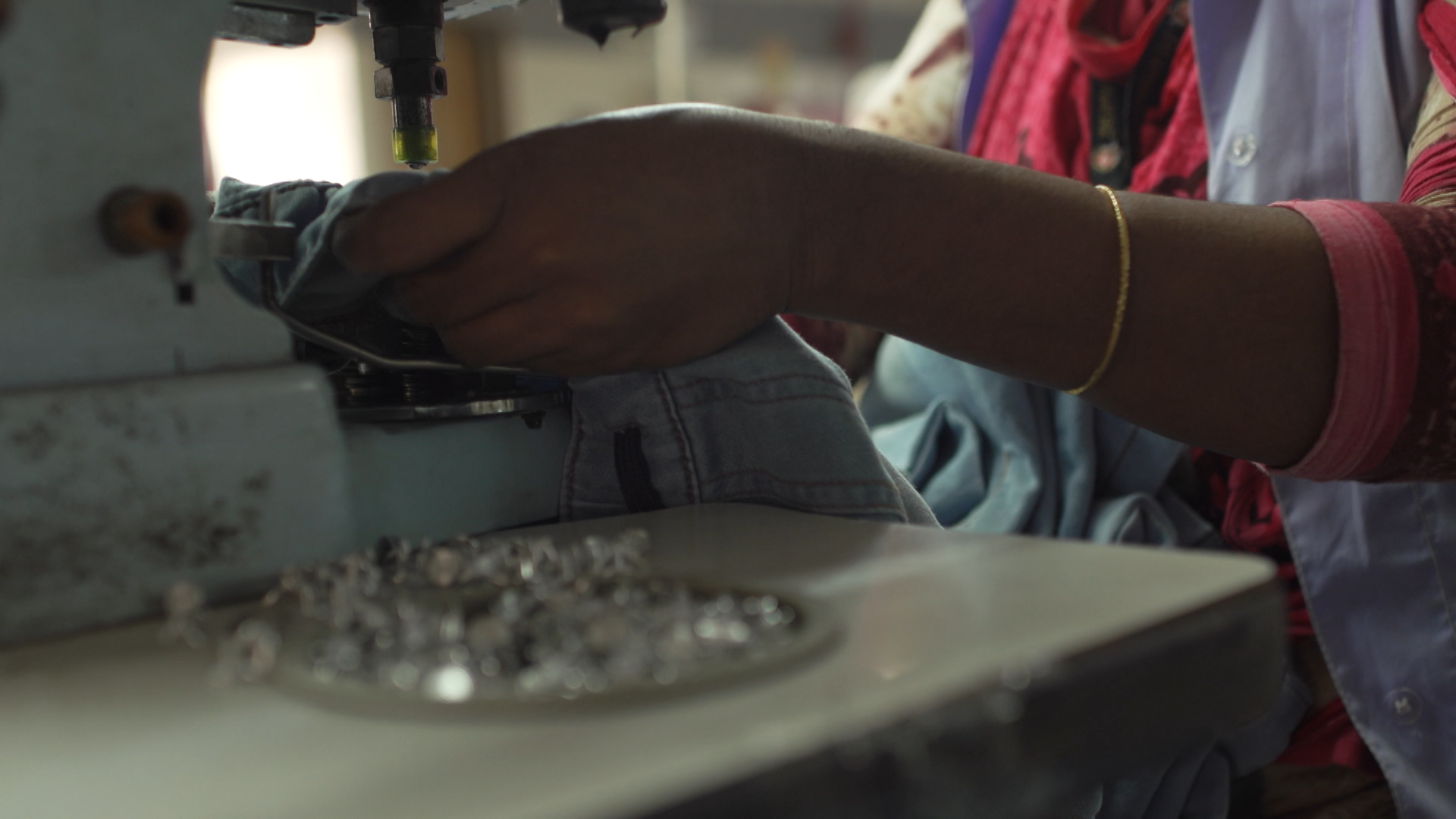I live in Dhaka, I have been working in the garment industry here for nearly 6-years.
I loved working in this industry, but it's erratic. They stop working whenever they want, they make people redundant as they wish. [Factories] shut down every now and then. I have had to roam around many towns in search of work.
The clothes [I made] were all exported out of Bangladesh. Kids dresses, sweaters, tracksuits for women: we used to make different things at different times.
If we asked any questions, they used to say to us “Why you do you need to know? Do your work.” We used to sit on the machines to make these clothes. We were not allowed to speak to one another. When we sat and did the stitching, there were attendants who used to guard us, always, and watch what we were doing.
But due to the pandemic, which rocked the whole world, I am now redundant.
I am an old lady, I am 45 years old. Many people my age, and those who are in their 50s or 60s, were asked to leave their jobs. We cried a lot but it was of no use. They told us they cannot keep people like us, that it is impossible.
Due to my age, I cannot get any work. No garment factories are recruiting us. The garment industry prefers people who are young. It is painful.
Due to COVID-19, there is nothing at home to eat, there is no oil to cook and a shortage of food. My house rent is unpaid, my landlord is asking for money. I am unable to pay my son’s tuition fees. I have high hopes that I will educate my son, but now I feel I am unable to do that, too. Because of not working in the garment industry, I have started doing sex work in order to earn money.
Because of not working in the garment industry, I have started doing sex work in order to earn money.

A garment worker in Dhaka, Bangladesh. Source: Dateline
I do this work secretly, without telling my family, as I do not want them to know. If they come to know about this work, they will not understand my pain. They will not love me anymore.
The guests who pay me, I feel they are buying my body. Some [clients] pay 200 Taka [$3AUD], some give 500 Taka [$7AUD], anywhere in between that. Some are good, some are mean.
Some guests have no sense of empathy towards me, I feel sad because of this.
The guests who come to me talk rubbish sometimes, they ask me to do it in different positions, which I do not like at all. On top of all that, [many] refuse to use condoms, too.
This job brings me stress. I fear doing this work during the pandemic. Using condoms is a form of protection, but there is nothing to protect me from this virus.
I make sure I wear a mask, I stay clean and hygienic. But I do not have any control over the men who come to me.
I am worried I will get COVID-19. I have no money. If I get sick the hospitals will not treat me without money, they will ask me to leave.
Now due to COVID-19, many garment women are doing this kind of work. The friends or colleagues I used to work with have all landed in the same flesh trade business, just like me.
I wish foreigners, especially foreign buyers, could help support us and the people of our country.
These brands and these garment factories cannot imagine what state people are in and how financially deprived we are. We are in enormous pain, both mentally and financially.
This piece is based on an interview that has been translated and edited for length and clarity.
To learn more about the impacts of the pandemic on the fashion industry and its supply chain, watch Dateline’s full documentary, COVID19: Fashion’s Great Unravelling, here.

